Estate Administration & Probate Attorneys
At Daly Mills Family Law and Estate Planning, our skilled North Carolina estate administration lawyers know that losing a loved one is one of the hardest times in our clients’ lives. Unfortunately, these traumatic times can be compounded by the stress and confusion of dealing with their estate matters.
Determining how to validate a will or transfer property can be a complex undertaking. Unfortunately, these issues can become even more overwhelming if there was no will, and your family must navigate the probate process. We can remove the uncertainty of these events.
As part of our commitment to our fellow North Carolinians, our law firm was featured in Limitless Magazine to shine a light on combining our compassion with the legal skills necessary to protect our clients’ futures.
More importantly, our estate lawyers do our jobs because we care about our clients, and only take a limited number of cases each month to ensure everyone gets the personal attention they deserve.
Our committed estate administration attorneys have offices conveniently located in Mooresville and Charlotte as well as through virtual appointments, making us easy to find and even easier to reach, so our clients can achieve their goals in the way they want to achieve them.
When you are ready to talk, we are ready to help you understand the next steps, so you can move forward with confidence.
What Does a North Carolina Estate Administration Attorney Do?
At Daly Mills Family Law and Estate Planning, our estate administration lawyers partner with our clients to answer each of their difficult questions after they have lost a loved one.
Whether you are an executor charged with handling your loved one’s affairs, a beneficiary seeking guidance on the law, or someone else with a claim on the estate, we can help.
Our dedicated estate administration attorneys can assist you with:
- Navigating the probate process.
- Handling trust administration.
- Ensuring that you fulfill your legal obligations as an executor or trustee.
- Transferring property – including life insurance, payable-on-death accounts, and retirement accounts – outside of the probate process.
- Dealing with any business interests or succession issues.
The loss of a loved one should never be followed by stress, anxiety, and confusion — it should be a time to properly grieve. We can help you understand how our North Carolina estate administration laws apply to your unique circumstances, so you know exactly what comes next.
Out-of-State Estates with Property in North Carolina
Because of North Carolina’s beautiful mountains, idyllic landscapes, and access to the Atlantic Ocean, many residents of other states own houses, condos, vacation rentals, or other types of property here.
Even if your loved one lived out of state — and if their primary probate is in their home state — the North Carolina property will likely have to go through probate in the Tar Heel State.
If that is true for your estate administration circumstances, you will need a local attorney to handle the ancillary proceedings. We can help.
Trusted Estate Administration and Probate Attorneys in North Carolina
At Daly Mills Family Law, our estate administration lawyers focus on producing unique solutions for each client we represent to outline their customized legal needs with skill and precision, so they know we are fighting for a successful outcome.
At Daly Mills Family Law, our North Carolina attorneys understand our state’s complex estate administration laws, and how to implement the necessary legal solutions.
When you partner with our skilled North Carolina estate administration attorneys, you can expect dedicated legal services tailored to fit your needs. With a deep understanding of North Carolina family law, we offer solutions that align with your goals and protect your loved ones’ futures. Nothing says more about our commitment than the words of those we’ve helped. We believe actions speak louder than words; here’s what our clients have to say about their experience with Daly Mills Family Law and Estate Planning.


After a recent SC estate lawyer on a different grandparent passing (yes, one of those difficult periods of time many of us go through in our second half of life), we were very skeptical and untrusting. Danielle Feller was a complete 180 from the other experience, going on simultaneously. Faith restored and I continue to feel devine intervention that pure "luck" got us Danielle Feller. A+++.






She is also just a kind and easy to work with person. I've not worked with many attorneys in my life but I was nervous about the whole thing. She took a mess of a situation that had been stressing me out and exhausting me for the better part of a year + and resolved it.
While I hope I never need help with estate matters again, I cannot reccomend this law office enough. If you want a competent attorney who is also thorough and kind, this is the place.

My business with them just came to a close ... that part is kind of sad. Competent, friendly and supportive. I would highly recommend their services.





-Michele W.

The timeliness of all completed requested was excellent and they met my deadlines. Great staff.


Danielle Feller was just what we were looking for. Compassionate, intelligent , extremely organized the list goes on and on. We now can rest, reassured that everything is in order. We can’t speak highly enough of her staff. They created a warm inviting atmosphere that says…you are in good hands here at Daly Mills.
Disclaimer:
The testimonials listed are not all the feedback the firm has received. Each case is unique and must be evaluated on its individual merits. Prior results do not guarantee a similar outcome.
Contact Our North Carolina Estate Administration Attorneys Today for a Consultation
At Daly Mills Family Law, our estate administration lawyers focus on each of our client’s unique legal needs, and that begins by keeping our caseloads small. Each time you contact our office, you will have access to attorneys and support staff who can answer your questions, allay your fears, and develop practical legal solutions that make sense.
Future estate planning and administration matters may be complex, but they are all we do. And we do it because we want to help our North Carolina clients confidently build their futures for success.
It’s a jungle out there. Protect what’s yours. Contact our North Carolina family law and estate planning attorneys today at 704-878-2365 or online to develop a partnership with strong results.
Frequently Asked Questions for Our Estate Administration Attorneys in North Carolina
What is Probate?
Probate has two parts: The probate of a will and the administration of an estate. First, there is a court process where a will is proven to be valid. The administration segment is the process of gathering the estate’s assets, paying the estate’s debts, and then distributing the property to the beneficiaries or heirs, all under the supervision of the probate court.
What Kind Of Property Goes Through Probate?
Generally, any property that is solely in the decedent’s name must go through probate to be passed to beneficiaries under a will or to heirs under state law. If an asset has a payable-on-death provision, has a named beneficiary, or is held in trust, this property may not have to go through probate.
What Does an Estate Administrator Do?
An estate administrator or executor is appointed by a probate court when an estate owner passes away without appointing an executor.
Some duties of an estate administrator include sending out all appropriate notices to every heir or next of kin, filing insurance claims, re-titling property in the name of the estate, preparing and filing any tax returns.




